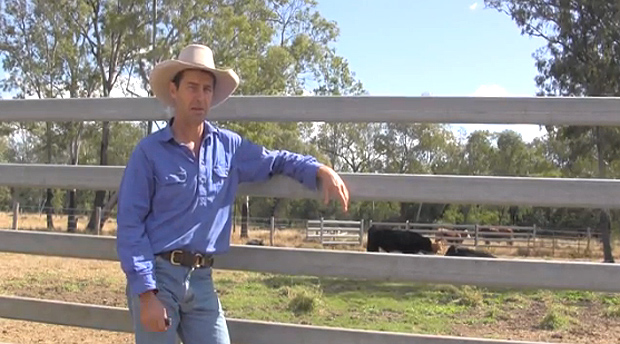
August 20, 2017
Recent changes to management of Bovine Johne’s Disease (BJD) reinforce the importance of having robust farm biosecurity protocols and practices in place – regardless of the type of livestock – farmers have been warned.
Cattle Council of Australia (CCA) president Howard Smith said a farm biosecurity plan was the first line of defence for all livestock producers in ensuring their livestock were protected against endemic and exotic diseases and pests.
“With the recent changes to the management of Johne’s Disease in cattle and the integration of on-farm biosecurity requirements into the Livestock Production Assurance (LPA) program, all livestock producers are encouraged to have their biosecurity plan in place by October 1, 2017,” Mr Smith said.
“For mixed livestock producers (cattle, sheep, goats, alpacas), if you choose to use the Johne’s Beef Assurance Score (J-BAS) it’s only applicable to your cattle.
“However, as Johnes Disease affects other susceptible species, a confirmed clinical case of Johne’s Disease in other ruminants has to be considered when determining a J-BAS score for cattle from the same property.”
Animal Health Australia provided the following information for mixed livestock producers:
- Only one Farm Biosecurity Plan has to be completed to cover all livestock on a property
- Producers who have developed a farm biosecurity plan as part of their approach to Johne’s Disease management will not need to complete another under the LPA program requirements.
- Johne’s Disease can be difficult to eradicate from an infected herd or flock; therefore sound biosecurity practices are essential in ensuring the disease, if already in the livestock, remains under control.
- The national sheep industries have recognised the importance of on farm biosecurity through the National Ovine Johne’s Disease Management Plan.
- Cattle are at minimal risk of contracting Johne’s Disease from sheep on the same property if these sheep are covered by a Johne’s Disease vaccination program.
- When buying any livestock, producers should request a health declaration relevant to the particular species.
- Although J-BAS is a voluntary tool, cattle producers should consider the benefits of a J-BAS for managing their JD risk and for access to certain markets that depend on live exports.
- When buying cattle, producers should ask the vendor further questions if worried about Johne’s Disease, and not just focus on the score alone.
J-BAS is managed by Animal Health Australia on behalf of the Cattle Council of Australia.
NB. Queensland herds without clinical cases of Johnes Disease are currently JBAS 7. However, to keep this rating, producers must have a biosecurity plan endorsed by a vet and have undertaken a “check test” with clear results by July 1, 2018.
Related articles:
- QDO Organises Biosecurity Workshop
- Japanese Cattle Ban Lifted
- BJD ‘Just One Of Many Diseases’
- QDO Disappointed By BJD Decision
- BJD Protected Zone Abolished
- Japan Ban Highlights BJD ‘Risk’
- Japan Suspends Live Cattle Imports
- AHA Presses On With BJD Overhaul
- Minister Labels BJD Fears ‘ Scaremongering’
- MP Calls For Vote On BJD
- BJD ‘Protected Zone’ To End
- MP Warns Against ‘Southern Push’ On BJD
- QDO Alarmed By BJD Proposals
- Input Sought On BJD Framework
- May Deadline For BJD Comment
- New BJD Property Identified
- $3m More In BJD Aid
- Beef Forum Backs BJD Campaign
- BJD Support Available For Graziers
- Feedback Sought On Cattle Levy
- Rally Behind Graziers: MP
- Sixty Properties Still Face BJD Bans
- Good And Bad News On BJD
- BJD Meeting In Gympie
- Agforce Welcomes New Biosecurity Fund
- BJD Band-Aid No Solution: Katter
- Voluntary Cattle Levy To Support New Industry Fund
- Two More Animals With BJD
- Ex-Chief Vet In BJD Role
- ‘Protected’ Status Key For BJD
- 150 Properties On BJD Watch List
- BJD Updates Available Online
- BJD Scare Locks Down Cattle
- MP Urges Graziers To Watch For BJD























